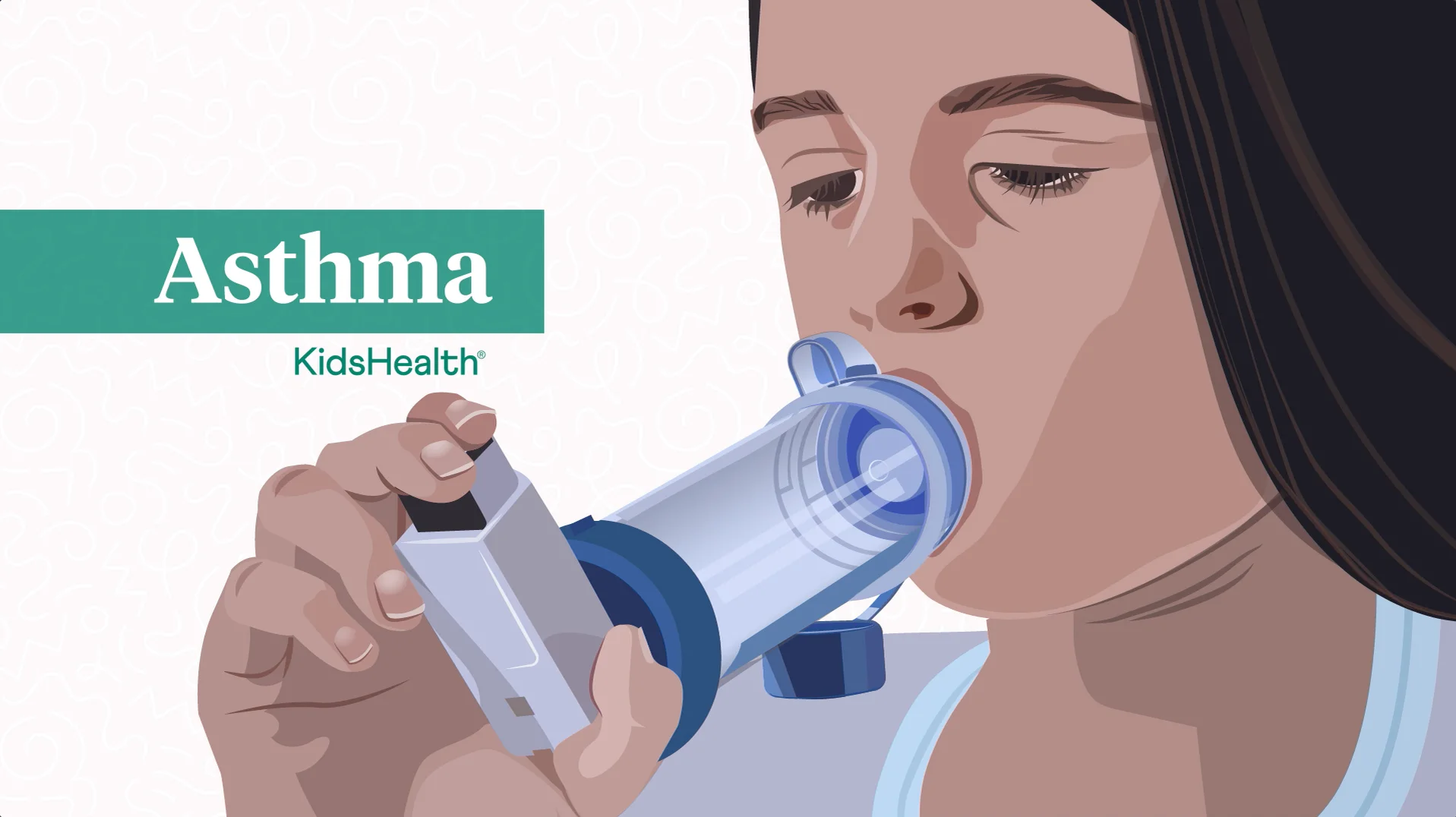
Most days feel fine. Until stairs surprise you. Or the morning air feels heavier. Asthma doesn’t always come with warning. It waits. Then it tightens. Something small—dust, laughter, perfume—becomes a trigger. And suddenly the body reacts. Chest stiffens. Breathing shifts. You know it instantly. Even before it gets worse. That’s why awareness, not just medication, matters. Because asthma hides inside ordinary moments.
Not every cough is harmless when you know your lungs too well
People assume it’s a cold. Or dry air. Or the season. But you know different. A small cough can be a message. Especially if it repeats. Or arrives with a wheeze. Ignoring it means risking escalation. Catching it early keeps the rhythm steady. Asthma doesn’t scream—it whispers first. Those whispers are where control begins.
Inhalers help, but routines shape everything else
Medication matters. But habits decide outcomes. Skipping doses doesn’t save time—it risks the whole day. Rescue inhalers are backup, not a plan. The controller keeps the base stable. If mornings are missed, triggers hit harder. Even strong lungs lose rhythm without routine. Asthma responds better to predictability than surprise. That’s why structure isn’t just helpful—it’s protection.
Weather doesn’t change symptoms—it changes thresholds
Cold mornings. Hot, dry afternoons. Polluted evenings. Each affects the airway differently. And unpredictably. You might feel fine at noon, then breathless by five. That’s not failure. That’s sensitivity. Weather shifts your internal tolerance. Carrying inhalers isn’t paranoia. It’s preparation. The sky changes more than moods. And your lungs know it before you do.
Sleep doesn’t heal if the airway keeps waking up
Some nights seem normal—until you wake up gasping. Asthma doesn’t sleep on schedule. It visits during REM. Or just before dawn. And if you’re snoring louder, or breathing faster, something’s off. Sleep tracking helps. So does elevating the pillow. Sometimes humidifiers ease the throat. But mostly, it’s about noticing patterns. And not assuming rest equals recovery.
Carpets carry memories your lungs don’t want
Dust settles deep. Into fibers. Beneath furniture. Even invisible layers stay active. Vacuuming helps—but not always enough. Mopping matters more. Especially in bedrooms. That’s where exposure lingers longest. Pets, perfumes, old smoke—all cling to cloth. Cleaning isn’t just for aesthetics. It’s protection. Especially when flares seem random but always happen indoors.
Exercise isn’t the enemy—it just needs better timing
Movement strengthens breath. But pacing changes everything. Sprints hit harder than stretches. Cold air stiffens more than warmups. Knowing your threshold is key. And respecting it. Some days you run. Others you walk slower. That’s not weakness. It’s adjustment. Use inhalers before workouts if needed. That’s not dependence. That’s strategy. Asthma doesn’t block fitness—it just changes the entry fee.
Stress shrinks space even when the air is clean
Anxiety speeds breath. Then shortens it. Then traps it. Even clean lungs can feel tight. Not from allergens—but emotions. A tense meeting. A fight. A deadline. Your chest knows before your brain does. That’s why breathing techniques matter. Deep inhales. Slow exhales. They reset more than rhythm. They remind your body that danger hasn’t arrived—just stress.
Cooking smells linger longer than flavor does
Sautéed onions. Fried fish. Even toasted bread. Some smells stay long after meals. They irritate quietly. Not like smoke—but slowly. Especially in small kitchens. Especially without fans. Sometimes it’s the oil. Sometimes the spice. Cooking doesn’t need to stop—but awareness needs to rise. Open windows help. So does distance. Asthma doesn’t care if the food’s delicious—it reacts to the air.
Masks protect more than they conceal
You might feel strange wearing one indoors. Or during pollen season. But it works. Masks trap particles. Dust. Pollen. Mold. Even perfume. They shield airways. Especially in crowded places. Or polluted streets. During flu season, they reduce illness. And less illness means fewer attacks. The benefit isn’t just physical—it’s mental. You breathe easier when the risk feels smaller.
Morning phlegm might mean the night air was too dry
Waking up congested isn’t always sickness. It could be dry air. Overnight evaporation. Especially in winter. Or AC-heavy rooms. That dryness thickens mucus. It narrows already-sensitive airways. Humidifiers help. So do nasal rinses. But the key is recognizing patterns. If mornings are harder, adjust the environment. Sometimes the problem isn’t inside you—it’s around you.
Skipping appointments isn’t saving time—it’s postponing control
Checkups aren’t just about bad days. They’re about recalibrating on good ones too. Asthma changes. So does your body. What worked last year might underperform now. Appointments catch silent changes. They update plans. Even if you feel fine. Especially then. Because stable doesn’t mean permanent. Control isn’t a guarantee. It’s a practice.
Pollen doesn’t knock—it floats through open windows
Spring invites air. And along with it, pollen. Invisible, but persistent. You don’t see it. You feel it. It lands on pillows. Settles on skin. And slides into lungs. Window screens help, but not fully. Knowing peak pollen hours matters. Avoiding parks at midday. Showering after walks. Asthma doesn’t hate spring—it just fears what’s floating in it.
Travel changes more than location—it changes routines
Time zones. Hotel rooms. Restaurant meals. Travel shifts everything. And sometimes, you forget the usual steps. Meds packed but not taken. Rooms dusty. Bedding unfamiliar. That’s when attacks rise. Travel with a routine, not just a bag. Confirm accommodations. Carry backup inhalers. And don’t push limits because you’re away. Asthma follows everywhere. Even vacations.
Pets don’t need to leave—but their dander needs limits
You love them. They love you. But their hair carries triggers. Saliva. Skin flakes. It floats. It lands on everything. Not just beds. But curtains. Sofas. Air vents. You don’t have to say goodbye. But rules help. No bedroom access. Frequent grooming. Air purifiers. Compromise allows breathing and companionship. Asthma doesn’t hate pets—it just struggles with leftovers.
Mold doesn’t always grow where you expect it
Basements. Bathrooms. Under sinks. Mold isn’t dramatic. It thrives quietly. Especially in humidity. Especially behind closed cupboards. You don’t need visible black patches. Sometimes it smells musty. Sometimes nothing. Until you start wheezing again. Regular checks help. Dehumidifiers prevent. And bleach is your friend. Prevention isn’t glamorous. But neither is a surprise flare-up on a rainy day.
Air purifiers help, but filters must be replaced on time
They hum quietly. They collect particles. But their power fades with time. Filters clog. Trapped dust becomes stagnant. Then it recirculates. That’s why schedules matter. Check the manual. Mark the dates. A purifier is only as strong as its maintenance. Breathing clean air depends on consistent care—not just purchase.
